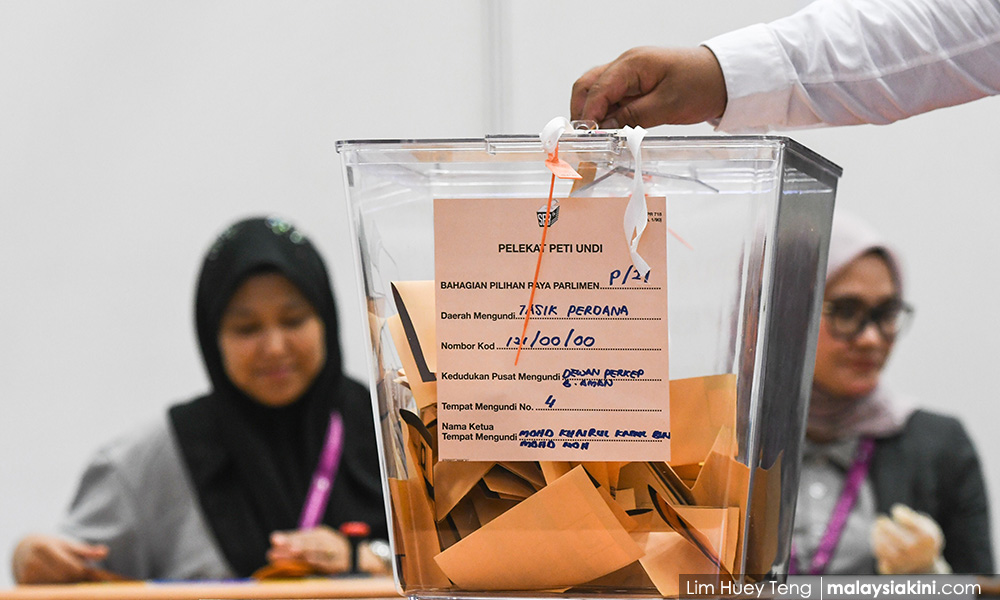
The way to convince Umno and PAS to support changing the country's electoral system is to convince them there is currently no party is in a stable political position, said Sunway University political scientist Wong Chin Huat (above).
Wong, who is advocating for Malaysia to adopt Germany’s mixed member proportional electoral system, said such a system would be safer for all political parties as opposed to the current "first-past-the-post" system.
“If proportional representation will prevent Umno and PAS from coming together, why should they support it, right?
“The answer is this. Umno and PAS may not have the luck. I’m not advocating for any outcome, I’m just saying that now, no one really has luck on their side.
“Therefore, it is better for them to go for a safer system (that is proportional representation),” Wong said to reporters after speaking at a forum “Can electoral systems encourage politics of moderation?” held at the Sunway University today.

Describing the proportional representation system as akin to buying insurance, he explained that under this system, political parties who lose will not lose completely though, at the same time, the winning parties will not be able to maximise their gains.
Losing parties, he said, may even stand a chance to be invited into the government under the proportional representation system as long as they are not too extreme in their views.
“In gambling, there can only be one winner. Everyone else will lose. If your luck is so good, there’s no way I can persuade you to stop gambling because it’s against your self-interest.
“But when things are uncertain, it is safer for everyone to buy insurance because everyone gets protected. You just cannot maximise your gains but you get protected,” he explained.
Malaysia currently practises Westminster's first-past-the-post system, sometimes described as “winner takes all”, where voters indicate on their ballot paper their candidate choice and the candidate who receives the most votes wins.

Germany’s mixed member proportional system is a combination of the first-past-the-post and party-list proportional representation, where voters are given two ballots, one ballot for constituency representatives, just like for first-past-the-post, and the other ballot for the party.
Wong said in order to incentivise political parties in Malaysia towards becoming more moderate, the country should move the electoral system away from the "winner takes all" system.
Umno and PAS are moving towards the extreme right of the political spectrum now because, he said, their short-term goal was simply to bring down the government first and after the election, hammer out an agreement with the Sabah and Sarawak parties to form the federal government.
“So what Umno-PAS are doing is very rational from their party’s standpoint in the short-run which may not be very good for the country. But if I am the president of PAS or Umno, I am very likely to do the same.
“So you need to change the incentive structure, so talking about the proportional representation system is to avoid from parties becoming so extreme before they can win,” Wong said.

The first-past-the-post system was originally meant to ensure two moderate parties would compete against each other in the centre of the political spectrum, he said.
But in Malaysia in practice, the opposition works to sabotage the government by pulling the government to the extreme ends in order to bring it down first, he said.
University of Western Australia political science professor Ben Reilly, who also spoke at the forum, pointed out that electoral reforms were usually difficult to push through.
This is because, he said, the government of the day was usually reluctant to change the electoral system under which they won previously. - Mkini



No comments:
Post a Comment
Note: Only a member of this blog may post a comment.